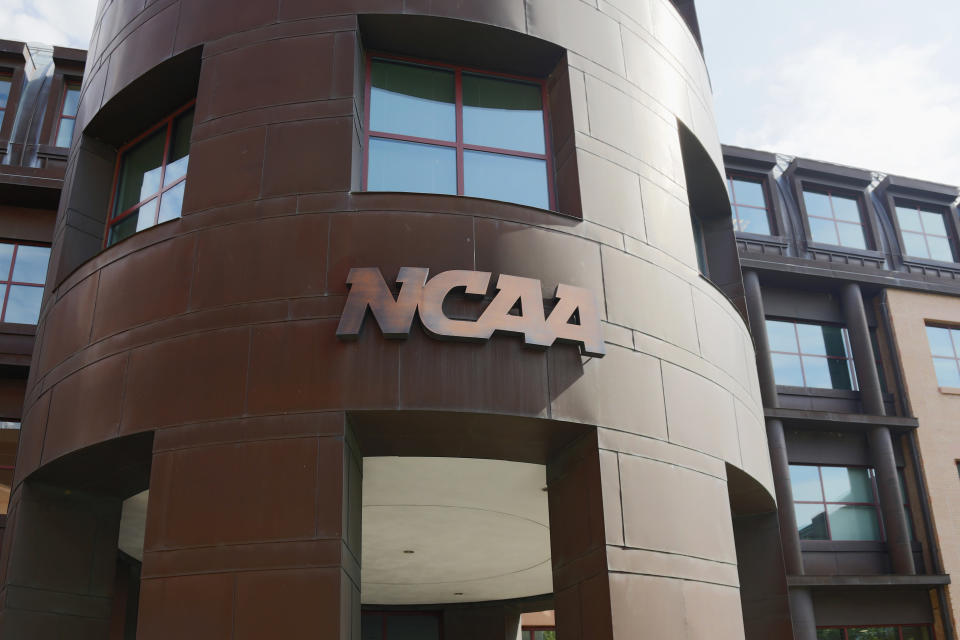Florida becomes latest state to introduce legislation calling for compensation for NCAA athletes
Florida is the latest state to pursue legislation to allow college athletes to be compensated for the use of their name, image and likeness.
Kionne McGhee, the Minority Leader of Florida’s House of Representatives, filed a proposal Monday that follows the lead of the bill signed into law in California. Like in California, McGhee’s proposal would prohibit universities in the state from preventing student-athletes, based on NCAA rules, from earning compensation “as a result of the use of the student’s name, image or likeness” or obtaining an agent.
McGhee filed the proposal for Florida’s 2020 legislative session with a proposed effective date of July 1, 2020 — two and a half years before California’s law is slated to go into effect on Jan. 1, 2023. Like in California and other states pursuing similar legislation, money going to athletes would come from endorsements and outside business deals in the same way they do with Olympic athletes. Money would not come from universities.
“The NCAA regularly earns more than $1 billion per year, but these student athletes aren’t allowed to accept a bag of groceries,” McGhee said in a Sept. 20 release announcing his bill. “Many of these kids aren’t from families that can afford to send them money, but they’re sports superstars and household names. That’s not fair. It’s time we allowed these adults the ability to earn a living for themselves and their families while they make a fortune for others and entertain millions of fans.”

NCAA opposes name, image, likeness legislation
The NCAA, naturally, is staunchly opposed to such legislation. Earlier this month, the NCAA called the California bill “unconstitutional” and said it would blur the lines between amateur and professional athletics.
After the bill was signed into law on Monday, the NCAA released a statement saying that any changes made to its model should be done “on a national level through the NCAA’s rules-making process,” not a state-by-state basis.
“As more states consider their own specific legislation related to this topic, it is clear that a patchwork of different laws from different states will make unattainable the goal of providing a fair and level playing field for 1,100 campuses and nearly half a million student-athletes nationwide,” the NCAA said Monday.
Back in May, the NCAA formed a working group to “examine issues related to student-athlete name, image and likeness.” The NCAA hoped California would delay consideration for the bill until NCAA officials discussed the issue. A final report from the working group is due to the NCAA Board of Directors in October.
Newsom, in his letter to the State Senate, said he is looking forward to “reviewing the recommendations” of the NCAA working group with the law’s commencement date of Jan. 1, 2023 chosen specifically to make adjustments that would address any “unintended consequences” that could arise.
“SB 206 provides a three-year implementation window. If unintended consequences arise that negatively impact our colleges and universities, or our student-athletes, my administration will work constructively with the Legislature to address these issues,” Newsom wrote. “Ultimately, this is a fundamental matter of fairness and equity that is well past due.”
But if this Florida bill passes through on the July 2020 timeline proposed by McGhee, could we see an accelerated process in other states? That remains to be seen, as the Florida bill is still in its infancy stages. Other states, however, will likely soon follow with legislation of their own — developments that ultimately could force the NCAA’s hand to make changes.
Looks like California is about to have some company. Florida, Pennsylvania, South Carolina, North Carolina among states now considering similar legislation. The pressure is mounting on the NCAA’s committee that is examining NIL issues, expected to release findings this month.
— Brady McCollough (@BradyMcCollough) October 1, 2019
More from Yahoo Sports:

